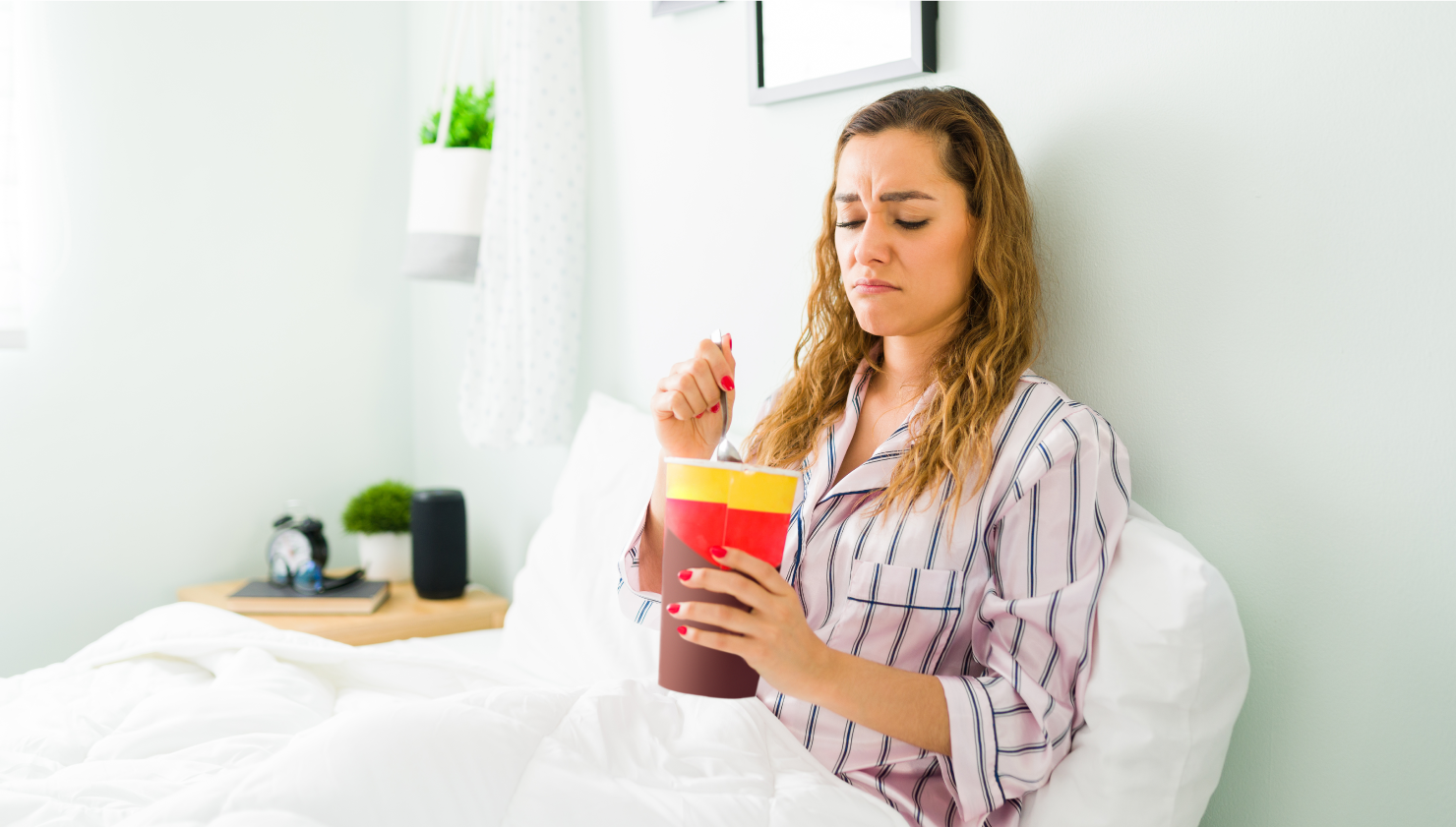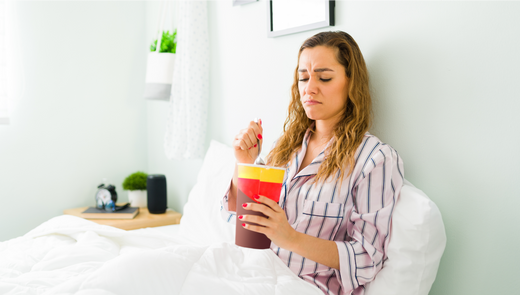
Ah yes, it's that time of year again. Every parent's favorite holiday is right around the corner. The “magical” night of the year where your sweet children receive obscene amounts of sugar-filled candy with plans to eat as much as humanly possible, all in one night.
Yes, we’re talking about Halloween.
All sarcasm aside, Halloween can be a fun-filled night for both kids and parents. However, when it comes to bedtime, you also know how challenging it can be getting your kid to sleep once they’re all hopped up on sugar and candy.
Is this just a result of an exciting night, or is there an underlying culprit here? Spoiler alert, there is.
Sugar has massive effects on sleep, especially when it’s consumed right before bedtime. What exactly are the effects? Let’s talk about it!
Effects of sugar on sleep
Lower sleep quality
According to a 2016 study, an increased sugar intake is linked to more restless and disrupted sleep. This study included two groups of healthy individuals; the first group had a controlled diet with limited sugar and the second group had no restrictions on their diet. The study showed the second group ate significantly more sugar and fat which led to substantial disruptions in their sleep.
The increased sugar in group 2’s diet led these individuals to spend less time in slow-wave sleep, which is the deepest stage of sleep we experience. This stage of sleep is essential for physical healing and restoration, as well as for helping our body maintain a healthy metabolism and immune system. These individuals also experienced a more challenging time falling asleep and reported more frequent wake-ups throughout the night than the controlled group.
Increased cravings for sugar
Eating sugar, or even simply seeing sugary treats, releases a hormone known as dopamine. Dopamine is associated with feelings of pleasure and satisfaction, but as we eat more sugar, our ability to feel this hormone diminishes. Due to this, our bodies crave dopamine more, which leads to higher cravings for sugary foods.
The cravings are felt throughout the night and lead to more frequent night wake-ups, resulting in late-night eating and poor sleep. As a result of this, we crave even more sugar. Both poor sleep quality and insufficient sleep limit our bodies' ability to produce appetite-regulating hormones, including leptin and ghrelin, which is why these cravings are stronger.
Sleep disruptions caused by sugar
Night sweats
Diets high in sugar lead to increased amounts of insulin in the body, which is the hormone that converts sugar into energy. When this happens, your blood sugar drops, and hypoglycemia occurs. This condition is a common contributing factor to night sweats.
Nightmares
A recent study linked sugary foods, like cookies, cakes, and ice cream, to nightmares. The study reported that 31% of participants experienced disturbing and unsettling dreams after eating food high in sugar before bed. While there is no concrete evidence supporting this yet, it’s something to consider, especially if nightmares are something your little one or yourself struggles with.
Tips to avoid sugar before bed
- Drink more water
- Include sleep-inducing foods in your diet
- Limit late-night snacking
- Limit sugary drinks
While it is important to watch your sugar intake, a couple nights of sugary fun, like Halloween, are harmless and are not a cause for concern. As long as you eat a healthy balanced diet, some sugar every once in a while won't hurt. For more tips on how to live a healthy lifestyle and achieve better sleep, check out our sleep blog. We’ll provide you with all the products and knowledge you need to achieve the best sleep possible!
